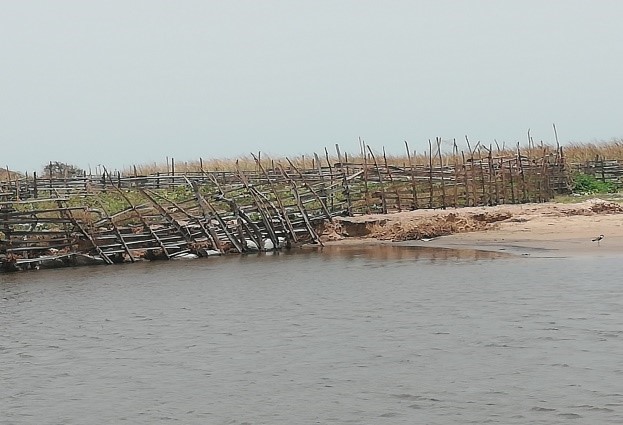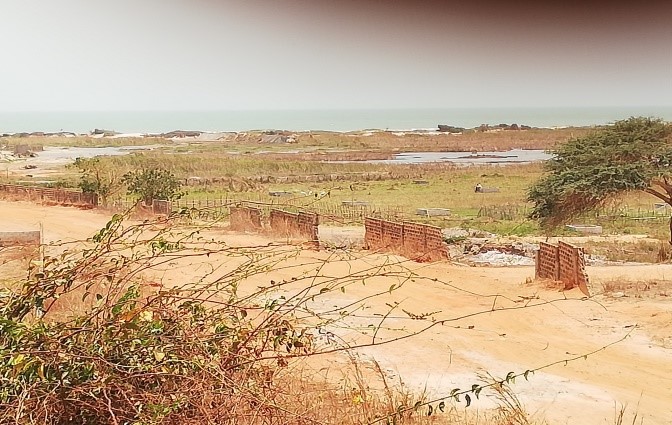By Madiba Singhateh
The Gambia Environment Alliance (GEA) on Friday, May 23 convened a press briefing to address the escalating issue of sand mining in Kombo South, particularly focusing on the operations of GACH Global.
Themed “The Moral and Ethical Responsibility of the State in Environmental Protection,” the event aimed to shed light on the urgent environmental degradation facing the region.
The GEA underscored the gravity of the situation, posing poignant questions such as, “When the last tree is cut, the last fish is caught, and the last river is poisoned, will we realize that we cannot eat money?” They emphasized that the destruction of the environment is more than just an ecological problem; it is a deep moral challenge.
“We are not here to oppose our government,” the GEA asserted. “We are here to awaken it. We must remember that progress cannot be achieved through the destruction of our natural heritage. There is no wealth in the withering of our wetlands and no justice in the quiet death of our coastlines.”

Vice President Muhammed Hydara also spoke, commending The Republic on the narrative regarding “The Opaque Mining Deals Gambling with Gambia’s Futures.” He described the revelations from the report as a national alarm, highlighting the complicity of the state in enabling environmental degradation.
Communities in Tujereng, Sanyang, Kartung, Batokunku, and Brufut are witnessing their lands being eroded by the ocean, not due to natural forces, but because their coastal buffers are being illegally stripped away, benefitting a few while endangering many. Hydara reported that the prices paid for this exploitation are steep; coastal erosion is accelerating, biodiversity is diminishing, and agricultural lands are turning saline and infertile.
With over 60% of farmlands in Tujereng affected by salinization, Hydara called for accountability, urging the need to name those responsible for the environmental crisis. He emphasized that GACH and other mining companies operate with deep connections that empower them, enabled by a system that, in his view, has abandoned its citizens.
Hydara expressed discontent with the National Environment Agency (NEA), criticizing it for failing to fulfill its role as an environmental watchdog. He noted that the agency has acted more as a facilitator of degradation rather than a protector of the environment, pointing to issues with Environmental Impact Assessments (EIA) being mere rhetorical exercises without public consultation or oversight.
“We see this as regulatory failure and betrayal,” he stated. “This betrayal impacts real lives — like a woman farmer in Sanyang whose harvest has failed for three consecutive years, and fishermen in Kartung watching as their livelihoods vanish.”
Kemo Fatty from Green-up Gambia highlighted the injustice prevalent in the environmental sector, illustrating that restoration efforts over the past eight years are dwarfed by the quick degradation caused by government actions. He noted with concern that the country’s forests are experiencing extensive degradation, with significant portions of the once 40% forest cover now compromised.
Other representatives from affected communities, including Mustaph Manneh from Kartung, Pa Ousman Sanyang from Sanyang, and Lamin A Sonko from Tujereng, voiced the concerns of their communities, echoing the urgent need for action to address the environmental crisis hastening across the region.
The GEA press briefing concluded with a call for immediate and meaningful actions to protect the Gambian environment before it’s too late.


















